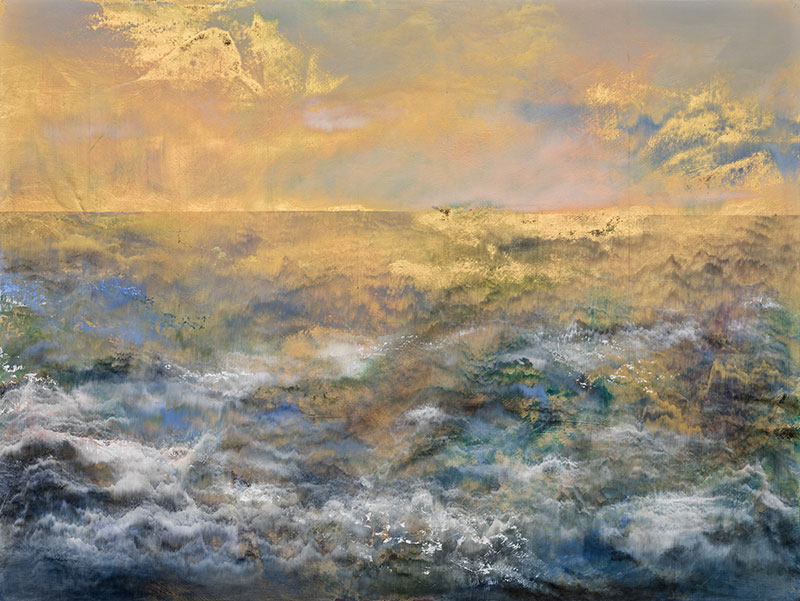To achieve your fullest potential as an artist, it’s important to safeguard your health, your artwork and your career. Here are three important situations in which you’ll want to exercise self-protection. As you’ll read, the best defense is for you to use common sense and you’ll avoid many of the pitfalls.
Protect Your Health: Avoid Toxic Art Materials
You may not be aware that some of the products and materials you use may be harmful. A few related causes of toxicity are from the use of: plastic resins in cast resin sculpture; solvents like hexane, benzene, and toluene in graphic arts materials; metal fumes from welding; and heavy metals and carcinogens, which are inhaled during airbrushing of watercolors, acrylics, and oil paints; among many others.
All fine art materials are required by law to conform to American Society for Testing and Materials (ASTM) D-4236 which is a labeling standard confirming if the product is at all hazardous. So, read the labels carefully before you buy the products. Go further and do your own independent research about the ingredients. Always work in well-ventilated areas and don’t eat and drink around art supplies that emit fumes.
You’ll find a comprehensive article on the subject: “Are Your Art Materials Making You Sick?”
Protect Your Art: Don’t Fall for Scams
Scams specifically aimed at artists seem to be on the rise and are becoming more devious than ever. Nancy Reyner, artist and author states, “Innocent people fall victim to scams every day, and artists are particularly vulnerable.” She warns artists against them in her article “Scams Aimed at Artists.” She urges artists to watch out for “Scam Purchasing.” It begins with the scammer sending an email to the artist expressing interest in buying their work and eventually tricks the artist into sending the work they purchase with a fraudulent cashier’s check.
Nancy advises, “Stay alert when reading emails. Do not make hasty decisions. Check out everything you can on the internet about a person making a proposal to you. Read up on current schemes. Search online for ‘email scams aimed at artists.’ If something feels odd about the request, trust your intuition!”
Protect Your Art Career: Use A Contract
When a gallery or agent offers to exhibit your art or represent you, they may tell you verbally what they plan to do for you. Before your emotions take over, take a deep breath and discuss the details of the relationship.
Get your agreement in writing. If you expect to have a fruitful relationship with the gallery or agent, you’ll want to have a signed agreement. This is an essential tool in doing business as a professional artist. If their own general artist’s contract makes you feel uncomfortable, don’t be afraid to ask for clarification. Discuss your concerns immediately, and if necessary, get legal counseling. There are attorneys that may offer pro bono services through arts organizations.
Read “Your Relationships With Art Galleries and Agents and the Written Agreement.”
Throughout your art career, you’ll be faced with many other situations like these. I advise you to always use your intuition, check the facts, get detailed information and proceed with caution.
Renée Phillips, The Artrepreneur Coach, helps artists attain their fullest potential in private consultations, coaching sessions, articles and e-Books found on renee-phillips.com. She is also founder/director/curator of Manhattan Arts International and The Healing Power of ART & ARTISTS. Follow her on Twitter @reneephillipsny, join her on Linkedin, reneephillipsartcoach, and on Facebook ReneePhillipsArtCoach.




